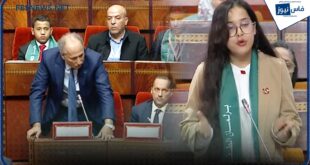As previously announced on Challenge, the 2025 Finance Bill (PLF-2025) will include preferential tax measures for employees, with a major overhaul of the income tax (IR) starting from next January.
According to the agreement reached in April between the government and the unions, the income tax reforms will bring significant changes to the calculation methods of these tax fees, with the clear objective of improving the income of state employees and private sector workers.
Main Measures:
Raising the Minimum Tax-Exempt Income:
- The minimum monthly tax-exempt income will be raised from 30,000 dirhams to 40,000 dirhams, which means that monthly incomes below 6,000 dirhams will be exempt from tax.
Revising Other Tax Brackets:
- Other tax brackets will be revised to expand and reduce the tax rates applied to the middle-class income by about 50% from the current rate.
- The top tax rate will be reduced from 38% to 37%.
Increasing the Annual Income Tax Deduction for Family Individuals:
- The annual income tax deduction amount for family individuals will be increased from 360 dirhams to 500 dirhams per person in the family.
Details of Tax Reductions:
According to a document shared by union sources, the tax reductions will be as follows:
| Monthly Income Category | Monthly Tax Reduction |
|---|---|
| Less than 6,000 dirhams | Full exemption |
| 6,001 to 8,000 dirhams | 460 dirhams |
| 8,001 to 10,200 dirhams | 570 dirhams |
| 10,201 to 13,000 dirhams | 780 dirhams |
| More than 13,001 dirhams | 980 dirhams |
Reactions:
These changes in income tax could represent a significant turning point for employees, helping to improve their financial situation and enhance their purchasing power. However, there are doubts about how these substantial tax reductions will be financed and whether they will lead to an increase in public debt or a reduction in spending in other areas.
Conclusion:
The 2025 Finance Bill represents an important step towards improving the lives of employees in Morocco. As the implementation of these changes approaches, it will be crucial to monitor their impact on the national economy and overall welfare. The government must ensure that these tax reductions do not come at the expense of overall economic stability and that they contribute to achieving sustainable economic prosperity for all citizens.
 فاس نيوز ميديا جريدة الكترونية جهوية تعنى بشؤون و أخبار جهة فاس مكناس – متجددة على مدار الساعة
فاس نيوز ميديا جريدة الكترونية جهوية تعنى بشؤون و أخبار جهة فاس مكناس – متجددة على مدار الساعة













